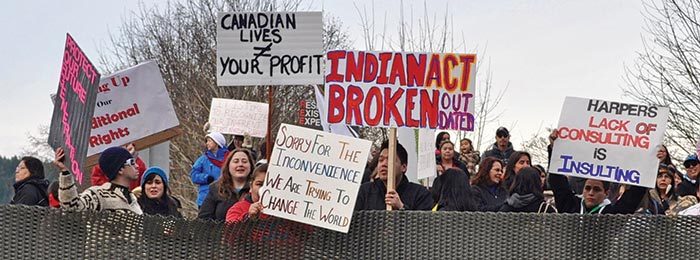From reconciliation to canoes, Canada’s 150th is ‘celebrated’
The City of Victoria is calling 2017 ‘A year of reconciliation’ as its guide to celebrations for Canada’s 150th anniversary.
Meanwhile, the City of Vancouver has named its festivities ‘Canada 150+’ to acknowledge pre-colonial history and will include three First Nations – Tsleil-Waututh, Squamish and Musqueam – in its events.
Other 150th-related events are in the planning stages in municipalities around the Salish Sea, including carving a totem pole in Duncan on Vancouver Island. But the estimated $500 million in spending by the Government of Canada isn’t getting all rave reviews (see story below).
Victoria Mayor Lisa Helps said: “Reconciliation is more than words. It is about understanding the past and deepening connections… Reconciliation means changing our practices and the landscape of the city to honour the past and create the future with our First Nations partners.”
Meanwhile in Vancouver, this summer’s The Drum is Calling festival, a Gathering of Canoes and a Walk for Reconciliation are some of the ways the city is acknowledging Indigenous history as it plans the year of celebrations for the 150th anniversary of confederation.
The drum festival in June will feature singer Buffy Sainte Marie. Gathering of Canoes will take place in July and the reconciliation walk in September. The city has already commissioned a logo from Musqueam artist Thomas Cannell. The Vancouver Native Housing Society said it would create a village of life-size Indigenous housing structures on the site of the festival.
The totem pole project in Duncan will take shape throughout the year in a highly visible location in downtown Duncan. Schools and community groups will be invited to participate in the carving process and the totem will travel to community events to engage Cowichan Valley residents in the project.
“The Cowichan Valley’s cultural identity is inextricably linked to Coast Salish First Nations heritage,” Mayor Phil Kent said.
Messed up in Canada?
An online campaign created by the federal government to promote the 150th anniversary appears to be backfiring among many Indigenous Canadians.
A Twitter account for the country’s 150th has been encouraging residents to enter a contest called #HeresMyCanada by submitting a 30 second video on “what Canada means to you” before the end of the year. The government also launched the #Canada150 hashtag for people to use since the country launched its year of events on Jan. 1.
But many on social media have instead been using those hashtags to point out the federal government’s ongoing mistreatment of Indigenous people.
“I say we brand every messed up thing Canada is still doing to Indigenous people as ‘#Canada150’ and #reconciliation,” @Khelsilem, a member of Squamish Nation, suggested.
Other tweets included:
“#HeresMyCanada: Over 100 Indigenous communities without direct access to safe, clean drinking water” – @MediaINDIGENA.
“Half a billion is being spent on #Canada150, while underfunding services for Indigenous kids continues. Awful” – @EtanaCain.




